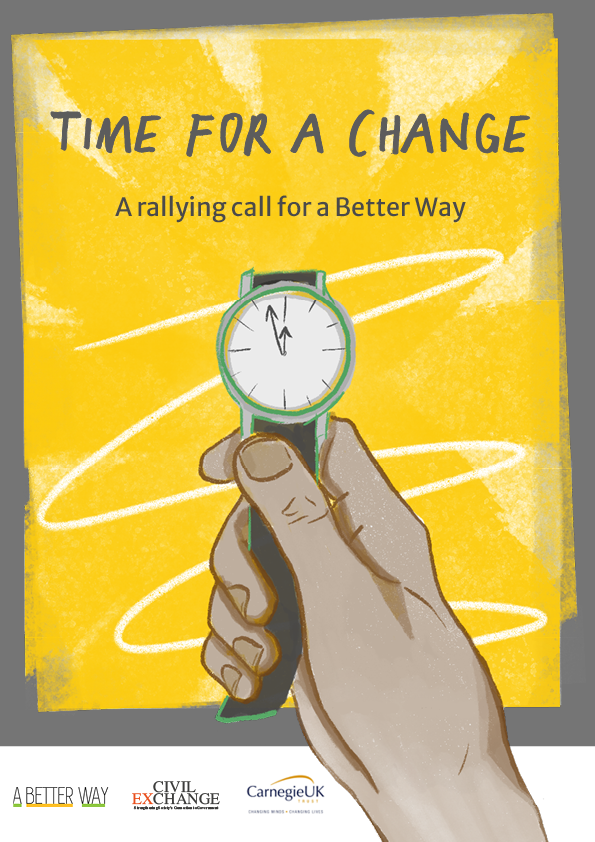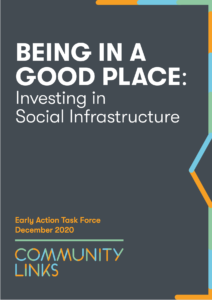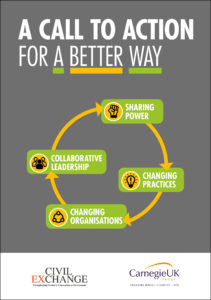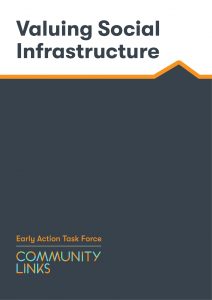
In 2022, we spoke to charities, organisations, grassroots campaigners, and people beyond civil society. We heard concerns about specific threats to democratic space. Yet, the bigger picture emerged as the greatest concern – we heard the overall problem is serious and growing, but is largely going unnoticed. Defending our democratic space: a call to action documents the problem, asks why it is happening, and shares strategies we can use to counter the threats. Here’s a digest of the key messages, the Executive Summary and full report.It is jointly published in August 2023 with the Sheila McKechnie Foundation.
Here’s what the Guardian and our Director, Caroline Slocock, had to say.

Why don’t we invest in early action? is a useful resource for anyone working on early action which distils analysis and recommendations from the Early Action Task Force from 2010-2021. Written by our Director, Caroline Slocock, a former member of the Task Force, it assesses progress with leading thinkers and practitioners and recommends how to continue to build momentum toward making early action not just common sense but common practice.

As well as setting out the change the network wants to see, Building a Bigger We: insights from our network, published in May 2022, includes 36 remarkable essays written by network members. Each of them illustrates an aspect of a Better Way’s model of change, or illuminates a cross cutting question the network want to explore further.
‘By working together we can make the exceptional commonplace.’

Making a Good Place: how to invest in social infrastructure looks at four case study areas which are exploring new ways to invest in social infrastructure and engage local people in decision-making. Reflecting on these, it draws out recommendations for both local place makers and government. It is written by the Director of Civil Exchange, Caroline Slocock, for the Early Action Task Force at Community Links, and includes a number of guest contributors.

Time for a Change distils learning from A Better Way during 2020 and sets out a new model for achieving the change it wants to see. It was published in February 2021.

Being in a Good Place: Investing in social infrastructure argues that major investment in social infrastructure is needed, particularly in communities experiencing ‘civic inequality’, and points to how this can be achieved. This investment is especially urgent now, given the Covid-19 crisis, and can be justified by the long-term social and economic benefits and savings to the Exchequer as a result of better health and well-being, stronger and more inclusive local economies and reduced inequalities. It is written by the Director of Civil Exchange, Caroline Slocock, for the Early Action Task Force at Community Links.

The Power of Deep Value Relationships in Services and Communities explores the latest thinking and practice on deep value relationships and their potential to transform lives; and makes recommendations for making them common practice in both services and communities, calling for a more positive narrative about their importance. It was written by our Director, Caroline Slocock, for Community Links.

A Call to Action for a Better Way is the result of three year’s discussion within the Better Way network hosted by Civil Exchange. It calls for a radical shift to liberate the power of connection and community to improve services and strengthen communities ; and sets out action in four areas: sharing power; changing practices; changing organisations and collaborative leadership.

Insights for A Better Way: improving services and building strong communities edited by Caroline Slocock. Communities could be so much stronger, services so much better and this collection of stories, ideas and examples helps to demonstrate the potential and show how it can be done. Essays are written by Better Way members and others and the network is hosted by Civil Exchange. For more information…

Valuing Social Infrastructure written by our Director, Caroline Slocock, on behalf of the Early Action Task Force. It defines social infrastructure – those aspects of a place which help to build early action into communities – and argues that we need to identify, value and protect it. Some communities are relatively poor in this respect and we need not just to stem the current trend to cut back on social infrastructure but invest more in those places that have least.
A Shared Society? The independence of the voluntary sector in 2017 explores the potential of Theresa May’s Shared Society, looks at what has been happening to the relationship of the state and the voluntary sector over the last 12 months, and considers what needs to change. It is the sixth in a series of health checks of the sector. Information on its key findings and recommendations is available here.
Independence in Question: the voluntary sector in 2016 is the fifth in a series of health checks of the sector, following on from the Independence Panel’s final report published by Civil Exchange the year before. Information on its key findings and recommendations is available here.
An Independent Mission: the voluntary sector in 2015, the final report of the Panel on the Independence of the Voluntary Sector, was published in February 2015.
Whose Society? The Final Big Society Audit was published inJanuary 2015. More information is available here.
Making Good: the future of the voluntary sector. For individual essays published as think pieces, click here.
The Big Society Audit 2013. The Executive Summary is also available here. For more information, look at our news page.
Independence Undervalued: the Voluntary Sector in 2014, published by the Baring Foundation, Civil Exchange and DHA.
The Baring Foundation, Civil Exchange and DHA published Independence under Threat: the Voluntary Sector in 2013, in January 2013, the second annual assessment by the Panel on the Independence of the Voluntary Sector.
The Big Society Audit 2012. For more information, click here.
Protecting Independence: the Voluntary Sector in 2012, the first annual assessment of the Independence Panel, the first of five annual assessments by the Panel on the Independence of the Voluntary Sector. For further details, click here.
Civil Dialogue: Ideas for Better Working between Government and Civil Society , a collection of essays by leaders across civil society and beyond, was published in 2011. To find out more, click here. To read the press release, click here. To download Civil Dialogue, click on the image below.
In 2011, the Panel on the Independence of the Voluntary Sector started its work with a consultation report, Voluntary Sector Independence, published by Civil Exchange and the Baring Foundation. To read the report, click on the image below.
